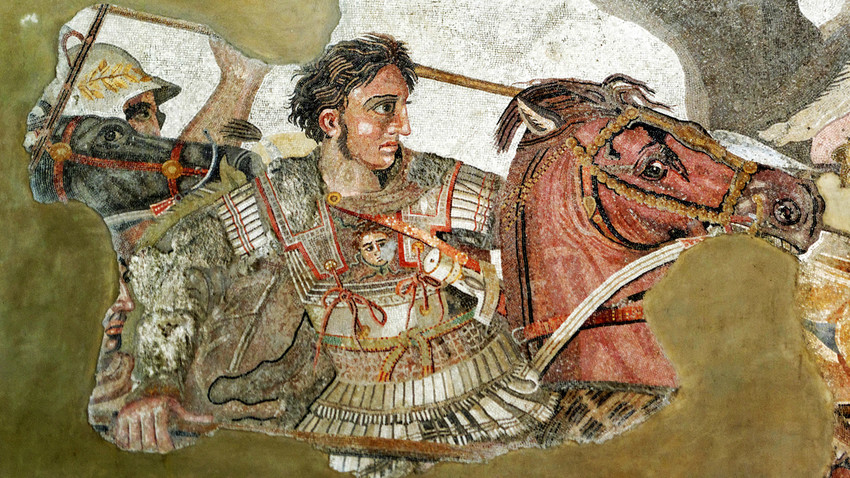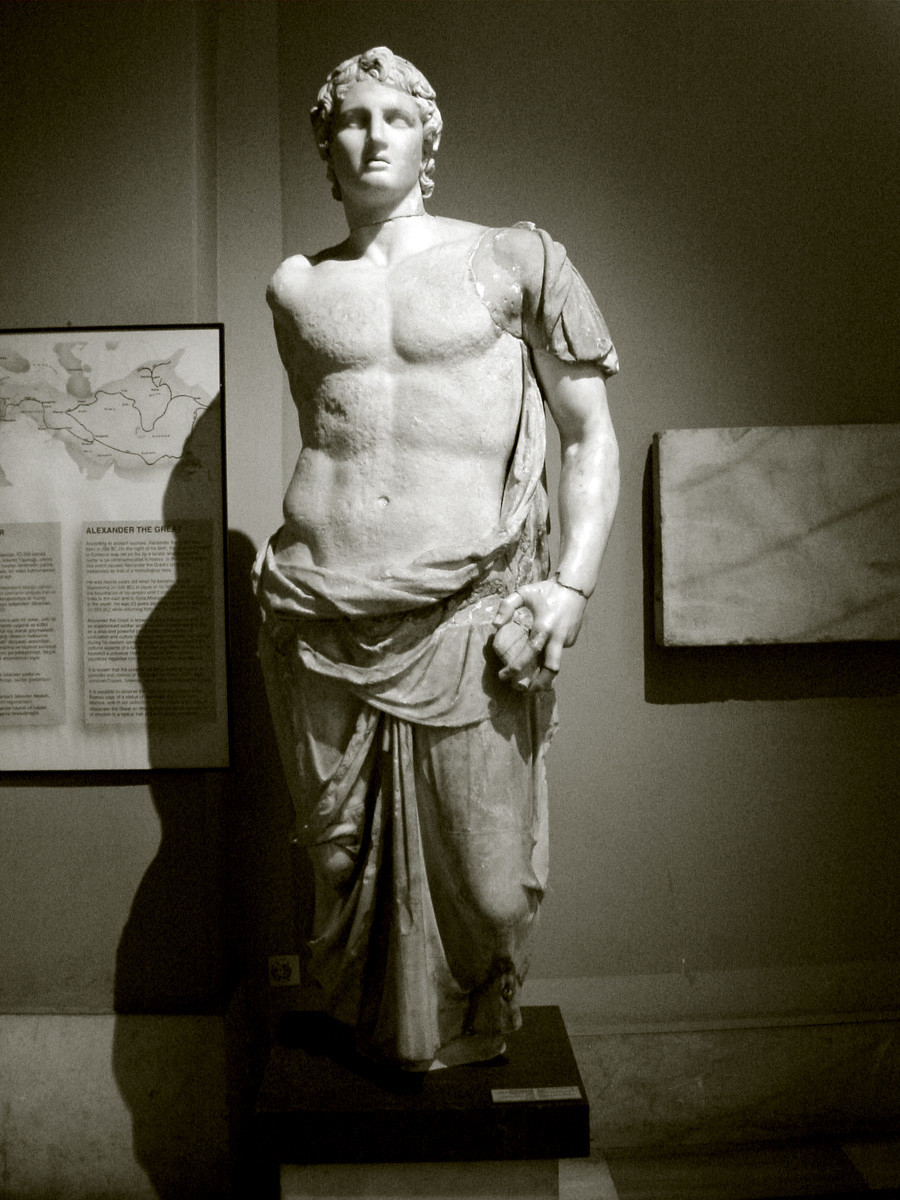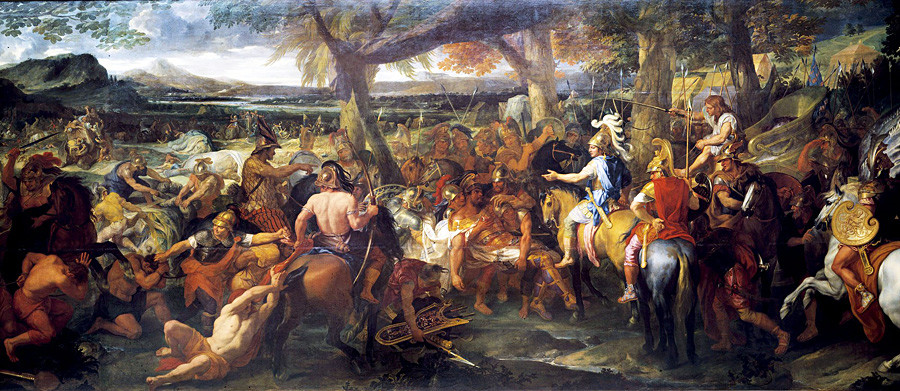Marshal Zhukov on Alexander’s failed India invasion

Handing victory in India to Alexander is like describing Hitler as the conqueror of Russia because the Germans advanced up to Stalingrad.
Berthold WernerIn 326 BCE a formidable European army invaded India. Led by Alexander of Macedon it comprised battle hardened Macedonian soldiers, Greek cavalry, Balkan fighters and Persians allies. The total number of fighting men numbered more than 41,000.
Their most memorable clash was at the Battle of Hydaspes (Jhelum) against the army of Porus, the ruler of the Paurava kingdom of western Punjab. For more than 25 centuries it was believed that Alexander’s forces defeated the Indians. Greek and Roman accounts say the Indians were bested by the superior courage and stature of the Macedonians.
Two millennia later, British historians latched on to the Alexander legend and described the campaign as the triumph of the
In
Zhukov’s view of Alexander
In 1957, while addressing the cadets of the Indian Military Academy, Dehra Dun, Zhukov said Alexander’s actions after the Battle of Hydaspes suggest he had suffered an outright defeat. In Zhukov’s view, Alexander had suffered a greater setback in India than Napoleon in Russia. Napoleon had invaded Russia with 600,000 troops; of these only 30,000 survived, and of that number fewer than 1,000 were ever able to return to duty.
So if Zhukov was comparing Alexander’s campaign in India to Napoleon’s disaster, the Macedonians and Greeks must have retreated in an equally ignominious fashion. Zhukov would know a fleeing force if he saw one; he had chased the German Army over 2000 km from Stalingrad to Berlin.
No easy victories

Statue of Alexander in Istanbul Archaeology Museum.
Giovanni Dall'OrtoAlexander’s troubles began as soon as he crossed the Indian border. He first faced resistance in the Kunar, Swat, Buner and Peshawar valleys where the Aspasioi and Assakenoi, known in Hindu texts as Ashvayana and Ashvakayana, stopped his advance. Although small by Indian standards they did not submit before Alexander’s killing machine.
The Assakenoi offered stubborn resistance from their mountain strongholds of
Realising that his plans to storm India were going down at its very gates, Alexander called for a truce. The Assakenoi agreed; the old queen was too trusting. That night when the citizens of
However, the fierce resistance put up by the Indian defenders had reduced the strength – and perhaps the confidence – of the until then all-conquering Macedonian army.
Faceoff at the river
In his entire conquering

Alexander meets Porus after Battle by Charles Le Brun
Public domainFacing this tumultuous force led by the genius of Alexander was the Paurava army of 20,000 infantry, 2000
According to Greek sources, for several days the armies eyeballed each other across the river. The Greek-Macedonian force after having lost several thousand soldiers fighting the Indian mountain
Another terrible weapon in the Indians'
Indians strike
The battle was savagely fought. As the volleys of heavy arrows from the long Indian bows scythed into the enemy’s formations, the first wave of war elephants waded into the Macedonian phalanx that was bristling with 17-feet long sarissas. Some of the animals got impaled in the process. Then
In the first charge, by the Indians, Porus’s brother Amar killed Alexander’s
According to the Roman historian Marcus Justinus, Porus challenged Alexander, who charged him on horseback. In the ensuing duel, Alexander fell off his horse and was at the mercy of the Indian king’s spear. But Porus dithered for a second and Alexander’s bodyguards rushed in to save their king.
Plutarch, the Greek
Macedonians: Shaken, not stirred
Although the Greeks claim victory, the fanatical resistance put up by the Indian soldiers and ordinary people everywhere had shaken the nerves of Alexander's army to the core. They refused to move further east. Nothing Alexander could say or do would spur his men to continue eastward. The army was close to mutiny.
Says Plutarch: “The combat with Porus took the edge off the Macedonians’ courage, and stayed their further progress into India. For having found it hard enough to defeat an enemy who brought but 20,000 foot and 2000 horse into the field, they thought they had reason to oppose Alexander's design of leading them on to pass the Ganges, on the further side of which was covered with multitudes of enemies.”
The Greek historian says after the battle with the Pauravas, the badly bruised and rattled Macedonians panicked when they received information further from Punjab lay places “where the inhabitants were skilled in agriculture, where there were elephants in yet greater abundance and men were superior in stature and courage”.
Indeed, on the other side of the Ganges was the mighty kingdom of Magadh, ruled by the wily Nandas, who commanded one of the most powerful and largest standing armies in the world. According to Plutarch, the courage of the Macedonians evaporated when they came to know the Nandas “were awaiting them with 200,000 infantry, 80,000
Hundreds of
Partisans counterattack
The celebrations were premature. On its way south towards the sea, Alexander's army was constantly harried by Indian partisans,
In a campaign at Sangala in Punjab, the Indian attack was so ferocious it completely destroyed the Greek cavalry, forcing Alexander to
Says Military History magazine: “Although there was more fighting, Alexander’s wound put an end to any more personal exploits. Lung tissue never fully recovers, and the thick scarring in its place made every breath cut like a knife.”
Alexander never recovered and died in Babylon (modern Iraq) at the age of 33.
Read more: How an Indian sailor trained in a secret mission in Vladivostok>>>
All rights reserved by Rossiyskaya Gazeta.
Subscribe
to our newsletter!
Get the week's best stories straight to your inbox